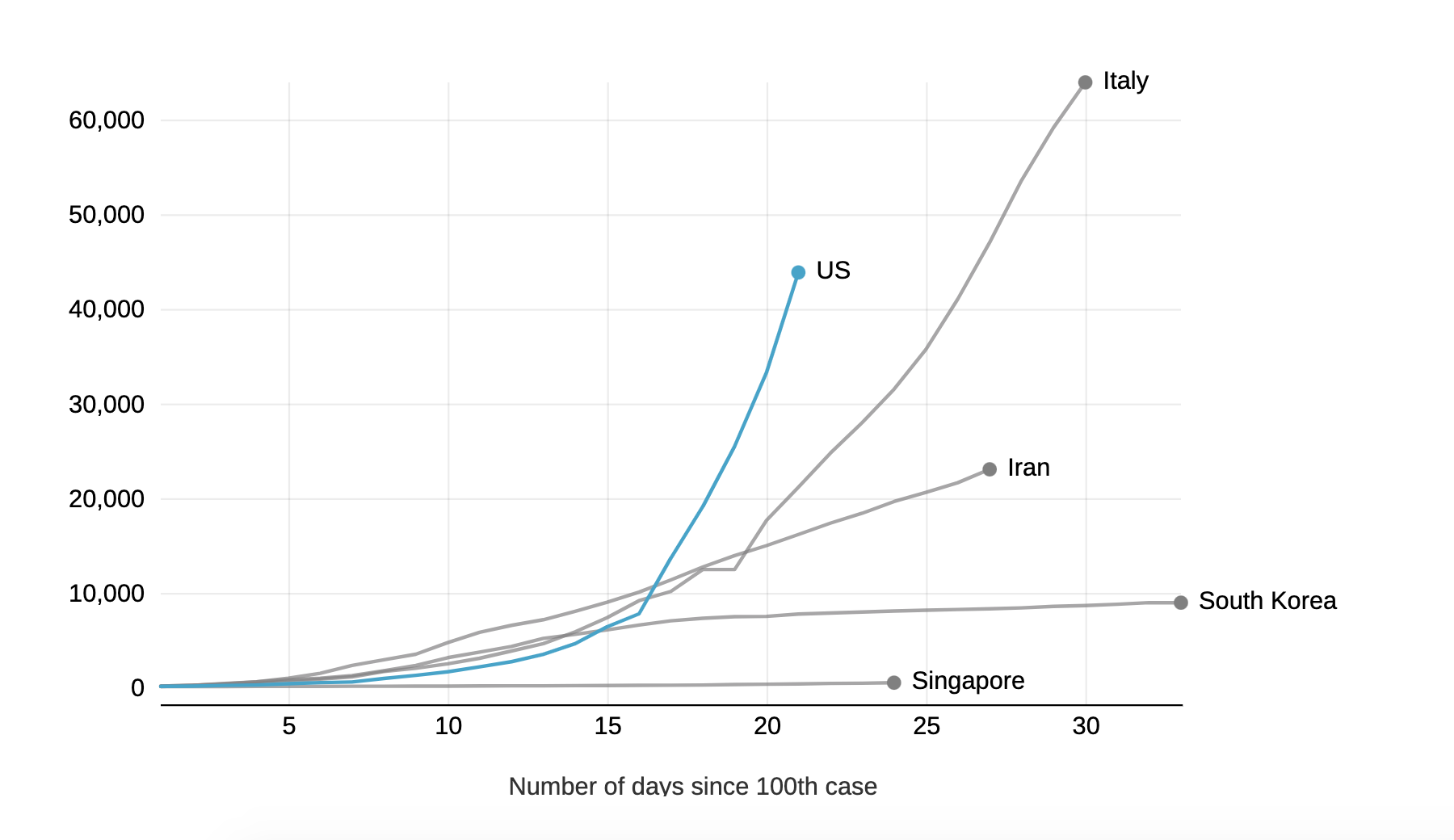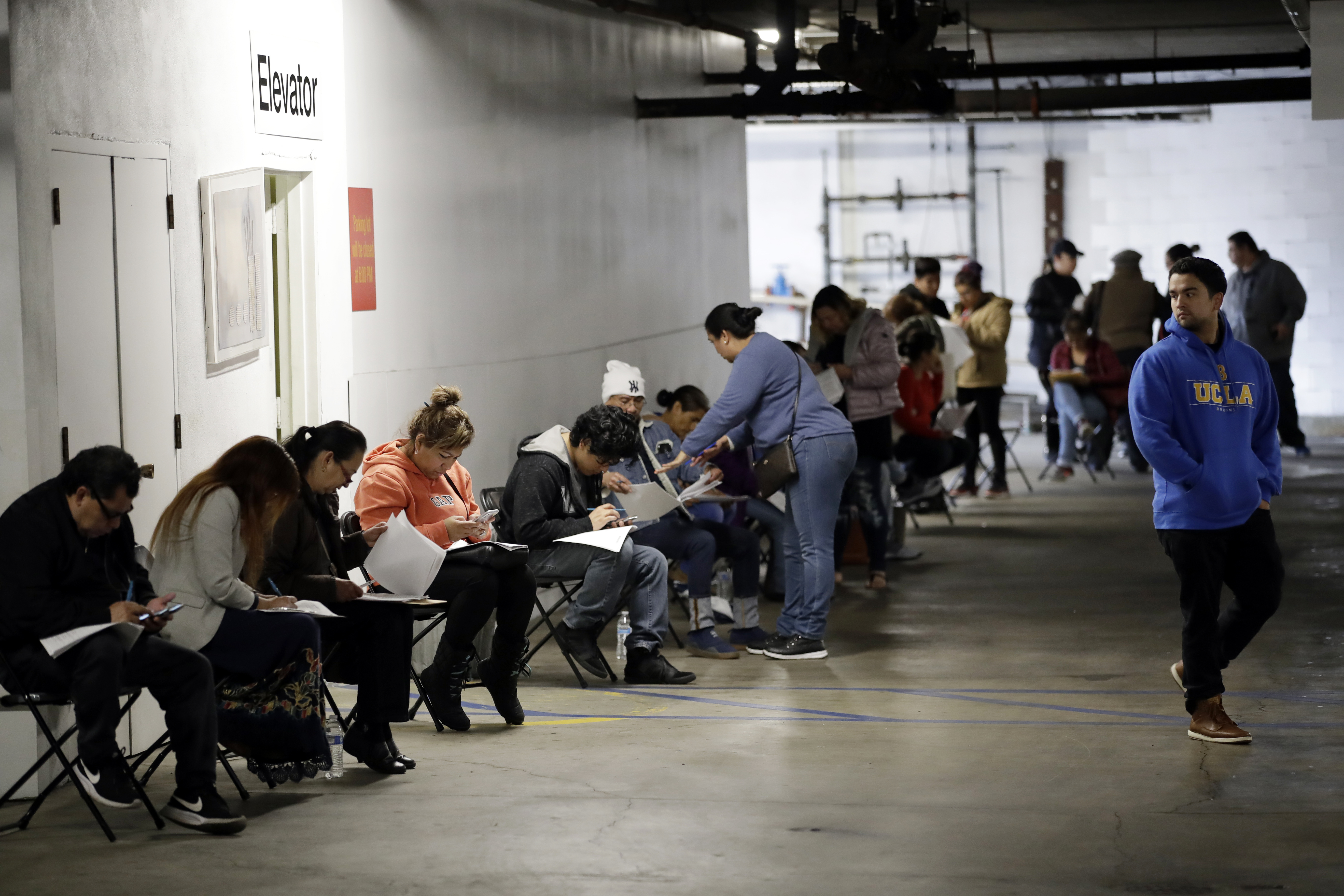Florida officials were locked in a standoff with two cruise ships steaming toward the coast Tuesday as more coronavirus hot spots flared around the country and embattled New York City used forklifts to load bodies onto refrigerated trucks in plain view outside overwhelmed hospitals.
Across the country, Americans braced for what President Donald Trump warned could be a “hell of a bad two weeks,” with the White House projecting 100,000 to 240,000 deaths in the U.S. before the outbreak is over.
Meanwhile, European nations facing extraordinary demand for hospital intensive-care beds are putting up makeshift hospitals, unsure whether they will find enough healthy medical staff to run them. London is just days from unveiling a 4,000-bed temporary hospital built in a huge convention center to take non-critical patients so British hospitals can stay ahead of an expected surge.
In a remarkable turnaround, rich economies where virus cases have exploded are welcoming help from the less wealthy. Russia sent medical equipment and masks to the U.S. on Wednesday. Cuba sent doctors to France. Turkey sent a planeload of masks, hazmat suits, goggles and disinfectants to Italy and Spain.
Get Southern California news, weather forecasts and entertainment stories to your inbox. Sign up for NBC LA newsletters.
In the U.S., federal, state and local officials negotiated over whether two Holland America cruise ships with sick and dead passengers may dock at Port Everglades, Florida. More than 300 U.S. citizens are on board. Two deaths have been blamed on the virus, and nine people have tested positive, the cruise line said.
Florida Gov. Ron DeSantis said Tuesday that the state's health care system is stretched too thin to take on the passengers: “Just to drop people off at the place where we're having the highest number of cases right now just doesn't make a whole lot of sense."
Trump said later that he would speak with his fellow Republican. “They're dying on the ship,” the president said. “I'm going to do what's right. Not only for us, but for humanity.”
Over the weekend, the Coast Guard issued new rules directing all cruise ships to remain at sea where they may be sequestered “indefinitely" during the outbreak and be prepared to send any severely ill passengers to the countries where the vessels are registered.
In Southern California, officials reported that more than 50 residents of a nursing home east of Los Angeles have been infected and two have died. Cedar Mountain Post Acute Rehabilitation in Yucaipa has been told to assume that all of its patients have the virus, health authorities said.
Worldwide, more than 870,000 people have been infected and over 43,000 have died, according to a tally kept by Johns Hopkins University. Everywhere, the real figures are believed to be much higher because of testing shortages, differences in counting the dead and large numbers of mild cases that have gone unreported.
The U.S. recorded a big daily jump of 26,000 new cases, bringing its total infections to more than 189,000, the highest in the world. The U.S. death toll jumped to over 4,000.
More than 1,000 of the U.S. deaths are in New York City alone. The region rushed to set up extra hospital capacity at the mammoth Javits Convention Center, on a Navy hospital ship and in the indoor tennis center that hosts the U.S. Open. On the streets outside hospitals, bodies were loaded onto refrigerated morgue trucks by gurney and forklift, in some cases in full view of passing motorists.
Coronavirus Pandemic Coverage
Even as the virus has slowed its growth in overwhelmed Italy and in China, where it first emerged, hospitals in Spain and France are reaching their breaking points, and the U.S. and Britain are bracing for waves of desperately ill people.
"It feels like we are in a Third World country. We don't have enough masks, enough protective equipment, and by the end of the week we might be in need of more medication too,” said Paris emergency worker Christophe Prudhomme.
Spain, which hit a record Wednesday of 864 deaths in one day, has boosted its hospital beds by 20%. Hotspots in Madrid and Catalonia have almost tripled their ICU capacity. Dozens of hotels across Spain have been turned into recovery rooms, and authorities are building field hospitals in sports centers, libraries and exhibition halls.
In Italy, morgues overflowed with bodies, caskets piled up in churches and doctors were forced to decide which desperately ill patient would get a breathing machine.
The pressure is easing on hard-hit Italian cities like Bergamo and Brescia as the rate of new infections slows. Yet many Italians are still dying at home or in nursing homes because hospitals are saturated and they could not get access to ICU ventilators.
With over 12,400 dead so far, Italy has the most coronavirus deaths of any nation.
The strain facing some of the world's best health care systems has been aggravated by hospital budget cuts over the past decade in Italy, Spain, France and Britain. They have called in medical students, retired doctors and even laid-off flight attendants with first aid certification to help fight the virus, although all need re-training.
The medical staffing shortage has been exacerbated by the high numbers of infected personnel. In Italy alone, nearly 10,000 medical workers have been infected and more than 60 doctors have died.
Map: Watch the Coronavirus Cases Spread Across the World
For most people, the coronavirus causes mild or moderate symptoms, such as fever and cough. But for others, especially older adults and people with health problems, it can cause severe symptoms like pneumonia and lead to death.
One reason Germany is in better shape than other European countries is its high proportion of ICU beds, at 33.9 per 100,000 people compared to 8.6 in Italy. Germany has only 775 virus deaths.
China, where the outbreak began late last year, on Wednesday reported just 36 new COVID-19 cases.
Charlton reported from Paris. Associated Press writers around the world contributed to this report including Joseph Wilson in Barcelona; Danica Kirka and Jill Lawless in London; Karen Matthews in New York; and Nick Perry in Wellington, New Zealand.



